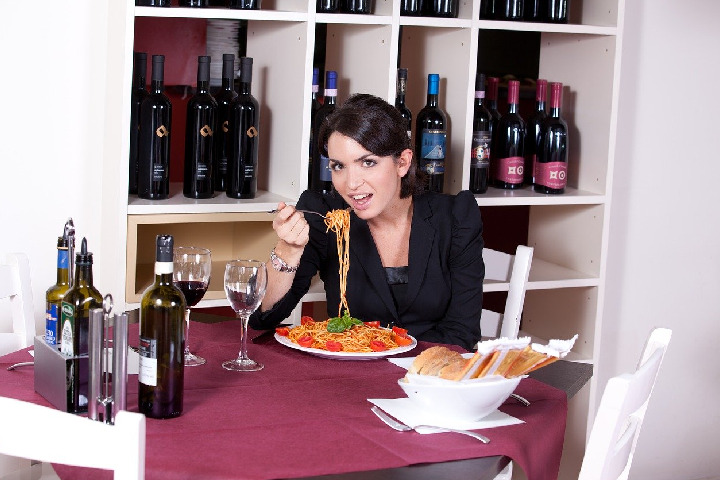Hunger: If you are nervous, sad if you get bored. In many of these situations, food is present, which shows us that we do not always eat hungrily, but often we do it on impulse. We explain how to distinguish one thing from the other to control it.
We eat without noticing, without thinking if it is what is convenient for us, and, most importantly, without listening to our body to know if we do it because we are starving or trying to fill other voids that are more psychological than the stomach.
Table of Contents
1. What is Emotional Hunger
We can distinguish several types of hunger:
- That of the senses. It’s what you get when you smell or see a cake, for example.
- Physics. The most real arises when our body asks for it due to a lack of nutrients.
- The cell phone leads us to look for a specific food, such as a broth, when sick.
- And then there is emotional hunger, the one that has more to do with the heart than with the stomach.
It may have taken place to you that you come home tired, stressed, grumpy, and want to eat all the world cookies. That is emotional hunger. You are fooling yourself into sensible you need it. Or even worse, thinking that it is the solution to those problems.

Another significant example is that of the person who hardly takes time to eat and treats it as a formality, a physical obligation, without stopping to analyze what he is eating, how much or why he is wearing it.
Many diets fail because they don’t treat emotional hunger.
“Many diets fail precisely because they do not go to the bottom of the issue and do not treat emotional hunger,” explains nutritionist Mercedes Pi Neiro has been a pioneer in our country in applying the theory of mindfulness to food to solve the problem.
2. Focusing on Food Helps You
Food has become a source of suffering. We have a terrible relationship with her, so the goal is to reconnect our body with food. Find out if we need that food that causes us so much anxiety.
“Mindfulness is not a fad; it has a broad scientific base, ” says Pineiro. It’s about being fully aware of the present and not doing things on autopilot. “If you eat, eat” sums up the nutritionist. By making the act of eating conscious, the objective is to become a healthy, joyful experience that is enjoyed by itself, not by its quantity.
3. How Do I Realize if I’m Doing It Fair?
Try to remember your last meal. Not in general, but details. If it was the morning toast, was it well toasted? How did it taste? If you can’t, you weren’t enjoying it. Don’t be surprised that you wanted another toast shortly after as if you had never eaten the first one.
Analyze what happens to you when you go to eat. Listen to your body. Are you starving? If so, why doesn’t an apple fill it up, and you need it to be a large piece of cake? If other worries cause that craving, it will not be fixed by eating. On the contrary, you enter a vicious circle in which you are increasingly unhappy with yourself.
Food does not solve the cause of your stress or sadness.
Go back to your origins. Sometimes our education at the table has not been good. One young woman discovered that she ate too fast, and it was because her parents fought often, and mealtime was always a tense and unpleasant time for her.
4. So You Can Eat in a Conscious Way
Take at least three mindful bites. Pay more attention to what you eat. Enjoy the texture, smell, and taste. Ideally, it should be all food, but at least spend time on the first three bites. Chew them well, and enjoy it. Stop and listen to your body.
Don’t just go from one plate to another. Sometimes you have to let the body rest and tell us if it has enough food. Eating slowly is also the way our stomach calibrates better if it is already full.

Enjoy what you’re eating: smell, look, listen. Neither television, nor book, nor mobile. Put aside all absorption and focus on the food. That doesn’t mean you can’t have a conversation. The relationship with others also nourishes our spirit.
It is not even a bad idea to talk about food, so the sense of hearing also joins the others when enjoying the dish.
5. The Social Habits That Make You Eat Badly
In short, it is about modifying our habits and considering another way of relating to the environment that surrounds us. Today’s society does not help.
For example, in the United States, they have gone as far as creating breakfast cups with a mobile phone holder, so you can watch it while you eat. And the rhythm of our society makes it increasingly difficult to sit down and enjoy food well.
There are even cups with support, so you don’t stop seeing your mobile. Despite everything, there are many things that we can stop. For example, saying no to those restaurant dishes where they put 250 grams of meat, and not accompanying it with sugary drinks. The sum of everything will make us discover a new way of understanding our diet.
Be patient. Like everything, at first, it costs. It is not easy to change your way. But rest assured that by doing this, it is inevitable that you will appreciate the dishes more, especially those that are best for you, and your body will notice the difference.

